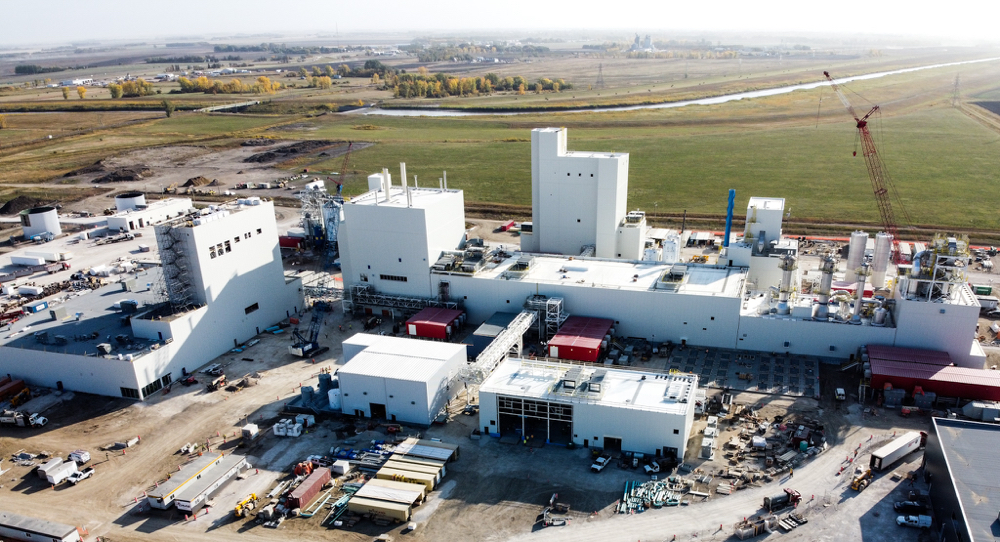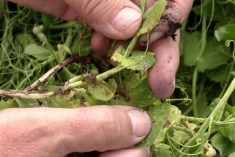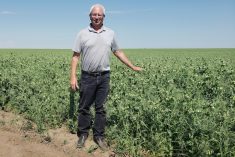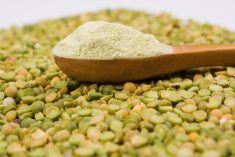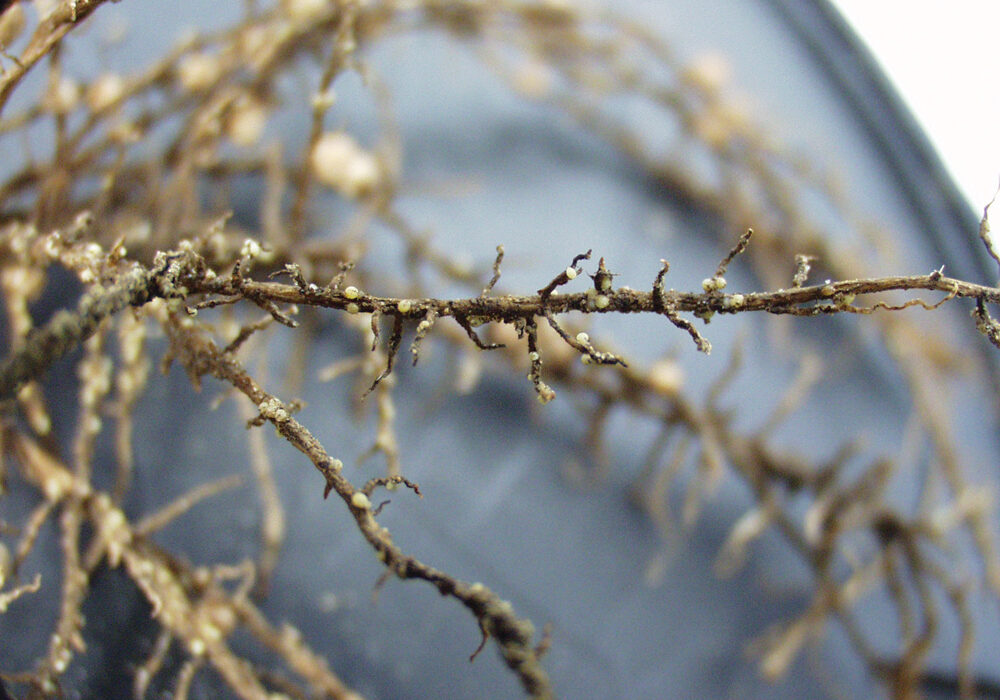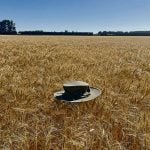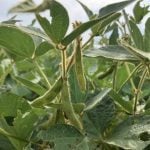Growers in Manitoba can now take advantage of new yellow pea contract opportunities with Roquette. The global leader in plant-based food product ingredients is now contracting for conventional and organic yellow peas for its new processing plant near Portage la Prairie, Man., which is at present the largest pea protein plant on the planet. Roquette was founded in 1933, currently operates in more than 100 countries and employs over 8,600 people.
After the plant begins operations, expected by the end of the year, yellow pea processing at the 200,000-square-foot facility will work upwards to 125,000 tonnes per year. According to a recent press release, Dominique Baumann, CEO for Roquette in Canada, said receiving of peas will begin in mid to late December, and Roquette grain buyer Glen Last added the plant is expecting to receive 5,000 tonnes of organic yellow peas from Manitoba growers in 2021.
Read Also

Note to subscribers: Planting a new seed for Grainews
Grainews now moves into The Western Producer as part of the farm newspaper’s new Farm Work section, providing Western Canada’s grain growers with one place to get the news and information they need.
“We’re quite confident there has been very good interest from growers,” Last said. He believes conventional growers will consider a switch to organic peas, and should the demand for organic products continue to increase, the entire plant could be switched over to organic pea processing. Peas may also be brought in from Saskatchewan.
Roquette continues to purchase all varieties of peas. However, premiums are available for the following preferred varieties: AAC Asher, Abarth, CDC Inca, CDC Profit, Agassiz, CDC Canary, CDC Lewochko, CDC Saffron, AAC Lacombe, CDC Amarillo and CDC Spectrum.
Why go organic, and how?
Some growers may consider a switch to organic due to higher market prices. Additionally, the future for organic crops looks bright as consumer demand for organic products continues to rise. However, producers will determine “what format is best for their property and business,” says Anastasia Kubinec, agronomist for Roquette in Canada.
For those wishing to have fields already in conventional crop production certified for organic pea production, it’s a three-year process, explains Laura Telford, Manitoba Agriculture’s organic sector development specialist. Producers must fill out the paperwork now and then follow the certification guidelines, obviously including no use of a prohibited substance (conventional crop protection products or fertilizers) on the fields in question.
Telford says the easiest and fastest way to certified organic pea production is to use a livestock system — a field of alfalfa, for example, onto which no fertilizer or crop protection products have been applied during the last three years. However, since growers must be under the supervision of an organic certifier for 15 months before organic certification is obtained, no organic premium can be provided for peas grown next year on that field. “If you filled out your paperwork now for that field of alfalfa, for example, you will be able to market peas grown on those fields as organic starting in 2022,” says Telford.
To support organic pea growers, Roquette will provide help that spans the entire process, beginning with proper seed selection. “We’ve recently launched our GrowWithRoquette.com webpage and we’ll be building a library of resources for growers that contract with us,” says Kubinec. “The library will include video tutorials, agronomy bulletins and a monthly newsletter. Our agronomy team is also available to provide support year-round and can assist with providing information on crop rotation planning, seed selection, crop establishment strategies, pest control, harvest and storage. Providing support and service to our growers is important to us and we are focused on building long-term relationships with growers that we contract with.”
Roquette also recommends that farmers who want to go organic connect with an organization such as Manitoba Organic Alliance for information on equipment costs and more. “They can also provide you with more information on the organic certification process for growers and averages for conventional versus organic yields,” says Kubinec. Organic yields are generally about half of conventional yields.
Contracts and pricing
Roquette’s organic contracts will adhere to Canadian organic rules and traceability, while being quite similar to contracts for conventional peas. Contract specifics will be discussed directly with interested growers, but Kubinec can provide a few details.
“Some highlights of our offer include one- and two-year contracts, price premiums and flexible delivery options,” she says. “Pricing reflects market pricing and a variety of other factors. We work directly with the grower on pricing. Our goal is to get great peas and for the grower to be successful.”
She adds response from growers in Manitoba and Saskatchewan was very strong for Roquette’s contracts in 2020. “It’s always our goal to ensure that our contracts are beneficial for growers and we are confident that growers will be pleased with what we have to offer,” she says. “We are looking to build long-term relationships with our growers that support their goals for their businesses. The success of our growers means success for us.”
For information on Roquette’s 2021 contracts for conventional and organic yellow peas, visit GrowWithRoquette.com or call grain buyer Glen Last at 204-872-0619 or 431-304-0173. Other members of the team include Kubinec and senior agronomist Bruce Brolley. Further information about the Manitoba Organic Alliance can be found at manitobaorganicalliance.com.

